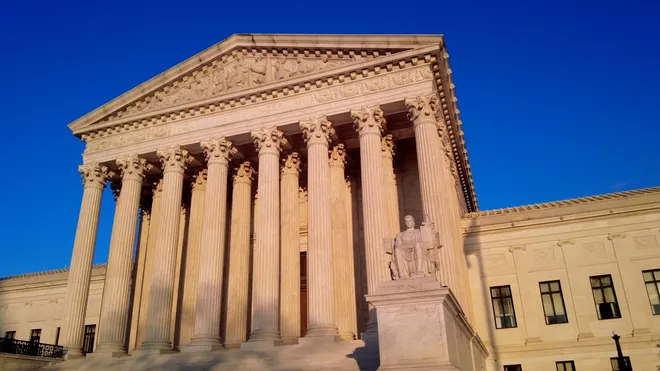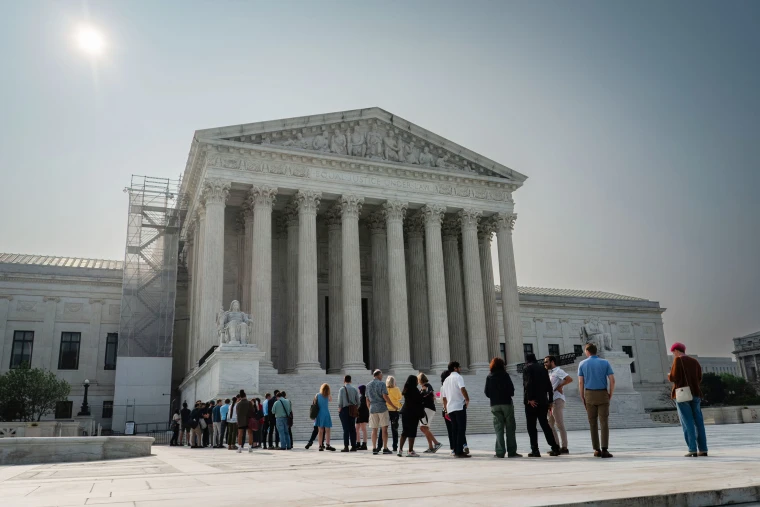The Supreme Court is scheduled to hear arguments at 10 a.m. on Monday regarding whether the Biden administration’s actions against what it deemed misinformation on social media platforms violated the First Amendment.
This case represents a significant addition to the ongoing series of cases this term, which demand the justices to interpret free speech in the context of the Internet age.
The genesis of the case stems from a flood of communications from administration officials urging platforms to remove posts on topics such as coronavirus vaccines and claims of election fraud. Last year, a federal appeals court curtailed such interactions.
Alex Abdo, a lawyer with the Knight First Amendment Institute at Columbia University, emphasized the importance of the Supreme Court’s review in balancing two crucial democratic values. “This is an immensely important case that will determine the power of the government to pressure the social media platforms into suppressing speech,” he noted. “Our hope is that the Supreme Court will clarify the constitutional line between coercion and persuasion.”

Throughout this term, the court has grappled with fundamental questions concerning the government’s authority over major technology platforms. In a recent ruling, the court established guidelines for when government officials could block users from their private social media accounts.
The constitutionality of laws in Florida and Texas, which restrict large social media companies from making editorial decisions about content, was examined.
These cases, alongside the one on Monday, collectively address the balance of power between the government and influential technology platforms in the realm of free speech.
The case, Murthy v. Missouri, No. 23-411, was initiated by the attorneys general of Missouri and Louisiana, both Republicans, along with individuals who claimed their speech had been censored.
While they acknowledged that platforms were entitled to independent decision-making regarding content, they argued that government officials’ actions in urging content removal amounted to censorship violating the First Amendment.
A unanimous three-judge panel of the U.S. Court of Appeals for the Fifth Circuit agreed, suggesting that government officials had likely overstepped constitutional bounds by pressuring platforms to remove posts they deemed misinformation. The panel’s injunction prohibited many officials from coercing or significantly encouraging social media companies to censor protected speech.
The Biden administration, seeking to overturn the injunction, filed an emergency application with the Supreme Court in September. Solicitor General Elizabeth B. Prelogar argued that the government had the right to express its views and attempt to persuade others to take action.
The Supreme Court granted the administration’s application, putting the Fifth Circuit’s ruling on hold and agreeing to hear the case, albeit with three justices dissenting.
In a related argument on Monday, the court will consider whether a state official in New York violated the First Amendment by encouraging companies to cease business with the National Rifle Association.
The case underscores a broader conservative effort to document what they perceive as a liberal conspiracy to silence their views, particularly concerning stories related to Covid origins, the 2020 election, and Hunter Biden.
The outcome of this case may significantly impact First Amendment law in a rapidly evolving media landscape, dictating the extent to which the government can intervene to counter the spread of potentially harmful claims.
The government’s actions, primarily aimed at public health measures during the pandemic, have been scrutinized by a federal judge through the lens of partisan culture wars. Judge Terry A. Doughty outlined numerous interactions between the administration and social media companies, suggesting potential First Amendment violations.
The case sets the stage for a confrontation between the justices and a conservative appeals court. The U.S. Court of Appeals for the Fifth Circuit, known for its conservative decisions, has a composition that favors Republican appointees. However, its rulings have occasionally faced skepticism from the Supreme Court.
This case is one of several on the court’s docket addressing the intersection of free speech and technology. With Monday’s argument marking the fifth such case this term, the decisions will collectively shape the boundaries of free expression in the digital age, holding significant political and economic implications.
